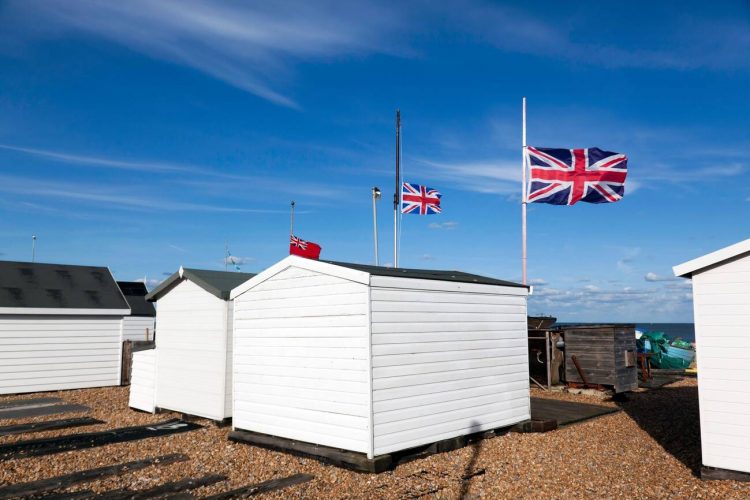This article explores the multifaceted implications of Queen Elizabeth II’s death, mainly focusing on the future of the British monarchy amidst growing challenges. Amidst Buckingham Palace’s announcement of King Charles III’s cancer diagnosis, calls for a referendum by anti-royalty movements gain momentum, reflecting a broader discontent with the monarchy’s role and expenses.
According to polls, protests against the royal system persist, fueled by economic concerns and the declining popularity of the monarchy.
Additionally, the emergence of independence tendencies in various British territories raises questions about the stability of the Commonwealth of Nations. As the monarchy faces increasing scrutiny and internal challenges, the article delves into the possibility of transitioning towards a republican system after King Charles III’s reign, signalling potential monumental shifts in British governance and identity.
Announcing the news of Charles III’s cancer
Buckingham Palace announced on February 5 that King Charles had been diagnosed with cancer after prostate surgery ten days ago. Immediately after this news, the first wishes for recovery and treatment arrived in England worldwide. Although the type of the King’s cancer has not been announced, publishing such a diagnosis is unusual for the royal family.
Buckingham Palace statement on Charles III’s cancer
According to a statement from Buckingham, Charles will continue his duties, but his presence in public gatherings will be reduced. The Royal Palace has announced that the King is refraining from public engagements due to medical advice. However, he will continue to do state affairs. This news was published ten days after the King underwent surgery in a hospital due to prostate complications. Buckingham Palace announced that Charles does not have prostate cancer but did not announce the type of his disease. He added: During prostate treatment, doctors noticed another issue and diagnosed cancer. According to the royal official, doctors have advised Charles to step aside from his government duties for a while.
Holding a referendum demanded by the anti-royalty movement
The implications of Queen Elizabeth II’s death were very negative. Since then, protests against Queen Elizabeth II’s expensive funeral have grown amid the country’s economic woes. The anti-monarchy movement known as Republicans has held several protests. This movement has thousands of members and tens of thousands of supporters. This movement has been calling for a referendum on the future of the British monarchy for years. Demonstrations and protests against the monarchical system in the UK continued until Charles’ coronation day. Republican leader Graham Smith called the coronation a slap in the face to millions of people struggling with a cost-of-living crisis.
Increasing protests against the royal system after the death of Queen Elizabeth II
The death of Elizabeth II after 70 years of reign was a significant turning point in UK history. For many, Queen Elizabeth II was a point of stability in a fluid world for several decades. Still, the throne she inherited faces evident and hidden problems and challenges. There are many implications of Queen Elizabeth II’s death at the domestic and international levels, which can be investigated.
More than a year has passed since Elizabeth II’s death, but protests against the monarchy have not subsided. According to statistics, at least a third of the British public considers the monarchy redundant, expensive, and obsolete. The Guardian recently wrote in a report that the British royal system is more vulnerable and fragile than ever.
Decline in popularity of monarchy according to polls
The perspective that faces the institution of the monarchy is different from the past in many ways. The royal family used to be more cohesive than it was. Some members of the royal family consider the limitations of this membership more than its benefits. In addition, some royal family members have been accused of moral scandal. Public opinion is also contradictory towards members of the royal family.
The growth of independence tendencies with the death of Queen Elizabeth II
One of the challenges facing Britain is the growth of the tendency for independence from the territory of the UK. In almost all British territories, including England, Scotland, Wales, and Northern Ireland, there are nationalist tendencies. Probably, with the death of Queen Elizabeth, these tendencies will have an opportunity to emerge and even strengthen. Meanwhile, Scotland has extraordinary and unique conditions. The 2014 Scottish referendum raised the question of whether Scotland should be an independent country. It ended with a fragile result of 55% against 45% in favour of the supporters of staying in Great Britain.
The possibility of the collapse of the Commonwealth of Nations
In the Commonwealth of Nations, there is a desire to sever political ties with Britain. In Australia, a referendum on independence from Britain was held for the first time in 1999. Australia’s referendum, like the Scottish referendum, faced a result of 54.87% voting “No” to the republic. With the death of Queen Elizabeth II, the desire to make Australia a republic re-emerged. However, Canadian public opinion is not unanimous on whether to continue or abolish the British monarchy. Probably during the reign of Charles III, independence tendencies in Canada also increased.
Implications of Queen Elizabeth II’s Death: Negative and disappointing
The Kingdom of Great Britain in the post-Queen Elizabeth II era faced three significant challenges:
- Maintaining the institution of the monarchy
- Defending the territory of the United Kingdom
- Defending the territory of the Commonwealth of Nations
The growing and intensifying tendencies against the institution of monarchy, especially the royal family, are undeniable. Independence in far and near lands is determined depending on the cohesion or weakening of the institution of monarchy. Charles III’s cancer and possibly his death shortly can increase protests against the continuation of the monarchy. There is a strong possibility that Charles III will be the last King of Britain, and after his death, the republican system will begin in the UK, and the royal system will end.





























